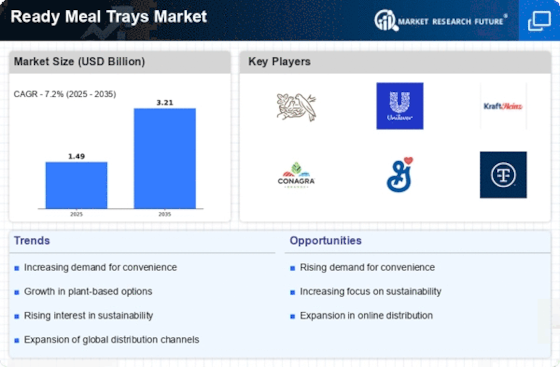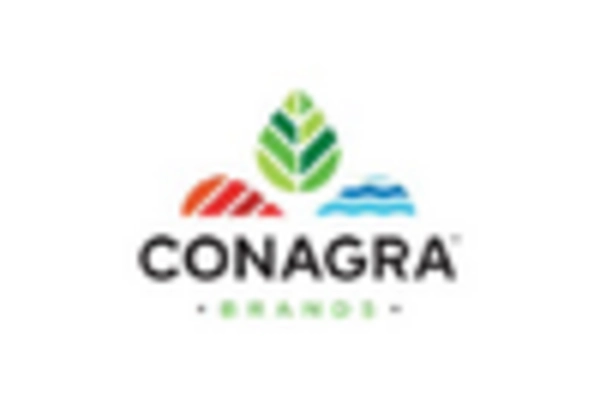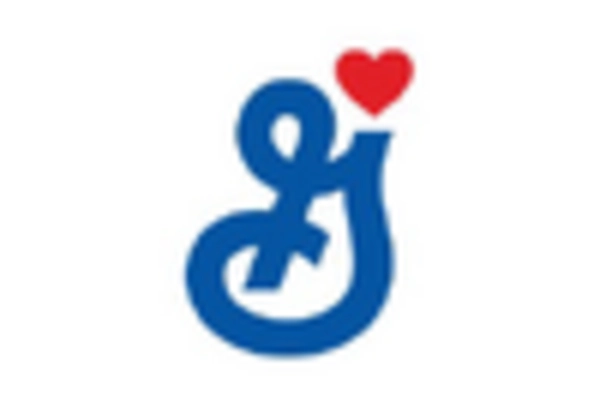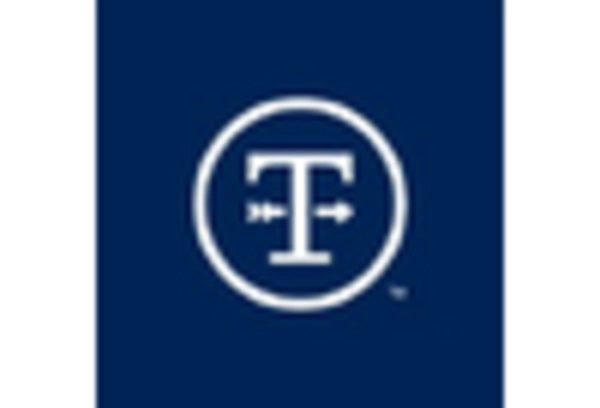Market Analysis
In-depth Analysis of Ready Meal Trays Market Industry Landscape
The market dynamics of ready meal trays are driven by a range of factors influencing supply, demand, and overall trends in the food packaging industry. Ready meal trays play a crucial role in the packaging of convenience foods, catering to consumers seeking quick and easy meal solutions. Understanding the market dynamics involves examining elements such as consumer preferences, technological advancements, sustainability considerations, regulatory impacts, and competitive forces.
Consumer preferences are a key factor shaping the market dynamics of ready meal trays. As busy lifestyles become increasingly common, there is a growing demand for convenient and ready-to-eat meal options. Ready meal trays provide a convenient solution for consumers seeking quick and hassle-free ways to enjoy a meal, driving the demand for packaging that is not only functional but also visually appealing. The design and material choices of ready meal trays often align with consumer expectations for freshness, convenience, and ease of use.
Technological advancements in packaging processes significantly impact the market dynamics of ready meal trays. Innovations in materials and manufacturing techniques allow for the development of trays with improved barrier properties, ensuring food safety and extending shelf life. Advanced printing technologies enable eye-catching designs and labeling, enhancing the overall presentation of ready meals. Manufacturers investing in these technologies can gain a competitive advantage by offering innovative and high-quality ready meal trays that meet the evolving needs of both consumers and food retailers.
Sustainability considerations are increasingly influencing the market dynamics of ready meal trays. As environmental consciousness grows, consumers are looking for packaging options that are environmentally friendly and minimize their carbon footprint. Ready meal trays made from recyclable or biodegradable materials have gained traction, reflecting the industry's response to the demand for more sustainable packaging solutions. Manufacturers are exploring ways to reduce packaging waste and adopt eco-friendly alternatives to align with consumer preferences and regulatory expectations.
Regulatory impacts are another critical factor shaping the market dynamics of ready meal trays. Government regulations pertaining to food safety, labeling, and environmental sustainability influence the design and material choices of packaging solutions. Compliance with these regulations is essential for manufacturers to ensure consumer safety, meet industry standards, and gain market access. As regulations evolve, companies must stay abreast of changes to ensure that their ready meal trays align with the latest requirements.
Challenges within the market dynamics include competition among manufacturers, cost considerations, and supply chain complexities. The ready meal tray market is characterized by a diverse range of manufacturers striving to differentiate themselves through factors such as design, material innovation, and cost-effectiveness. Managing production costs while meeting the demand for visually appealing and functional packaging poses a challenge. Additionally, the intricacies of the supply chain, including sourcing raw materials and ensuring timely production, add to the complexities faced by industry stakeholders.
The competitive landscape is a significant aspect influencing the market dynamics of ready meal trays. The industry is marked by intense competition, with manufacturers aiming to capture market share through product differentiation and innovation. Companies strive to stand out by offering trays that not only meet functional requirements but also align with consumer preferences for convenience, sustainability, and visual appeal. Understanding and adapting to changing consumer demands is essential for success in this competitive market.
Global considerations, such as trade dynamics, supply chain logistics, and geopolitical factors, also impact the market for ready meal trays. Manufacturers may need to navigate trade agreements, tariffs, and logistical challenges to ensure a seamless flow of products across international borders. Adapting to market dynamics in different regions is crucial for companies seeking a strong and sustainable presence in the global ready meal tray market.


















Leave a Comment